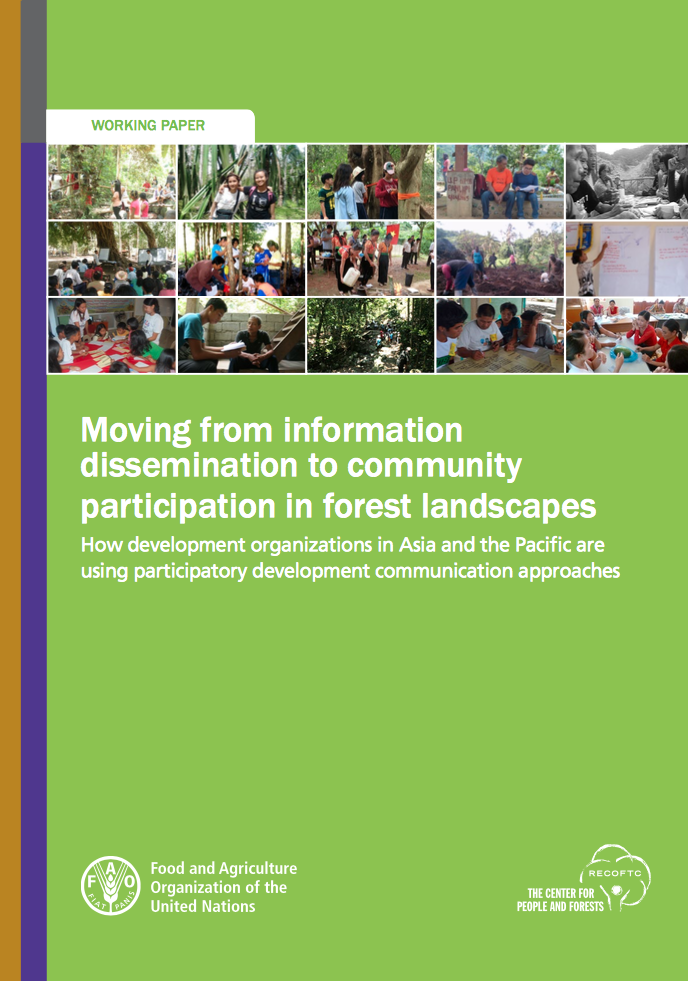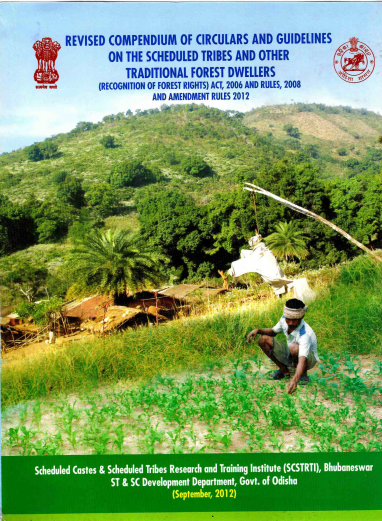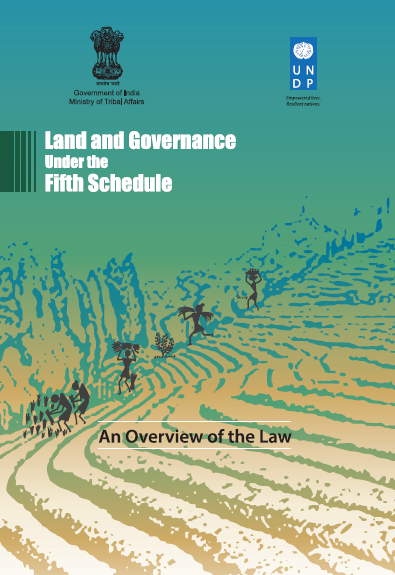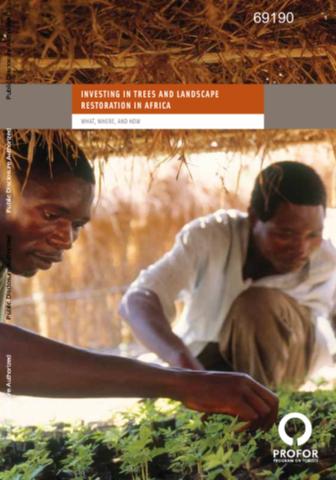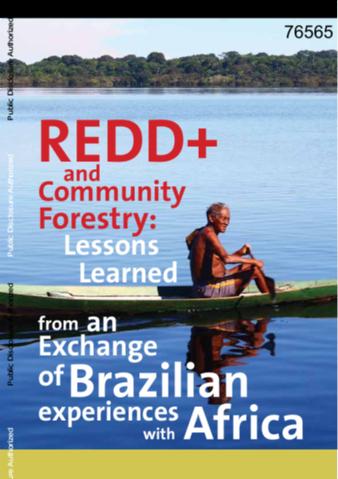foresterie communautaire
AGROVOC URI:
novel application of satellite radar data: measuring carbon sequestration and detecting degradation in a community forestry project in Mozambique
Background: It is essential that systems for measuring changes in carbon stocks for Reducing Emissions from Deforestation and Forest Degradation (REDD) projects are accurate, reliable and low cost.
Socio-economic issues in forest management in India
India's forest policy regime enacted so far had alienated the common users of their property rights in the name of forest and wildlife conservation. However, poor conservation outcomes have forced planners to reconsider the role of the forest community in resource use and conservation. Presence of a deep-rooted economic, social, cultural and ethical difference between members of Forest Protection Committee (FPC) constrains group behaviour and their capacity to modify regulations governing resource use.
What Future For Reform?
Who owns the world’s forests, and who decides on their governance? The answers to these questions are still deeply contested. To many Indigenous Peoples and local communities who have lived in and around forests for generations, the forests belong to them, under locally defined systems of customary tenure. In most countries, however, governments have claimed ownership of much of the forest estate through historical processes of expropriation, and those claims have been formalized in statutory laws.
Moving from information dissemination to community participation in forest landscapes
Traditionally, in the context of environment and natural resources management, many communication efforts have focused on the dissemination of technical information to end-users who were expected to adopt them. Development practitioners were trying to ‘push’ their products on communities in order to receive community commitment to their development initiatives.
Revised Compendium on Circulars & Guidelines on the Scheduled Tribes and Other Traditional Forest Dwellers (Recognition of Forest Rights) Act, 2006 & Rules, 2008 and Amendment Rules, 2012
The Ministry of Tribal Affairs, Government of India enacted the Scheduled Tribes and Other Traditional Forest Dwellers (Recognition of Forest Rights) Act, 2006, a tribal friendly legislation to address the historical injustice and critical issues, pertaining to the forest rights deprivation of the Forest Dwellers. To facilitate its implementation, FRA Rules, 2008 was framed and then made amendment to the Rules in 2012. However, several constraining factors and issues came to the notice in the implementation process of the Act in letter and spirit.
Land and Governance under Fifth Scheduled Areas-An Overview of the law
This book made an attempt to bring together various legislative protections available to the tribals communities pertaining to the land and governance in the scheduled areas and the role of different institutions to achieve the goals enshrined in the Constitution. It examined the Fifth Schedule of the Constitution and its various provisions and special arrangements made for areas inhabited by Scheduled Tribes and the law relating to local self governance in these areas, primarily through village panchayat-an institution of local self governance.
Forest governance and implementation of REDD+ in India
This report indicates that the Forest governance is identified as critical to the success of REDD+.
Implementation of robust REDD+ strategy is possible through Community Based Forest Governance.
Report talks on Reducing Emissions from Deforestation and Degradation (REDD+) which is a global mechanism that aims at sustainable forest management (SFM) through protecting forests and enhancing carbon sequestration.
Report briefly describes The Scheduled Tribes and Other Traditional Forest Dwellers (Recognition of Forest Rights) Act, 2006
Conexões de Primeira Classe
Este relatório apresenta os dados detalhados de um trabalho feito por investigadores da EIA em Moçambique e apontando as discrepâncias dos dados do comércio de madeira, este relatório providencia provas convincentes sobre como a demanda insaciável da China por madeira está diretamente conduzindo ao corte ilegal e ao contrabando de madeira em Moçambique, roubando deste país empobrecido recursos significantes.
Governação Florestal em Niassa: o caso de Muembe, Sanga, Lago e Cuamba
A governação florestal em Moçambique é um tema de destaque nos últimos tempos. No final dos anos 90 e início de 2000 houve um movimento intenso no sector florestal para adequar as políticas e o quadro legal sobre a gestão de florestas. Este movimento contribuiu para alinhar as políticas nacionais com os padrões internacionais, particularmente sobre o desenvolvimento sustentável, a partilha de benefícios com as comunidades residentes na floresta, a contribuição do sector florestal para os Objectivos de Desenvolvimento do Milénio, entre outros.
Investing in Trees and Landscape Restoration in Africa
Reforestation measures for degraded lands, strategies for the sustainable management of forest resources, and agroforestry practices that incorporate trees into farming systems are increasingly demonstrating their promise for producing commercialized tree products. Although the level of investment so far has remained modest, the challenge is to find ways to scale up promising investments in a way that will have a clear impact at the landscape level.
REDD+ and Community Forestry
This publication is the result of an initiative to promote an exchange between Brazil and African countries on lessons learned about the role of community forestry as a strategic option to achieve the goals of Reducing Emissions from Deforestation and Forest Degradation (REDD+). The initiative was supported by the World Bank with funding from the Global Environment Facility (GEF), and coordinated by the Amazonas Sustainable Foundation (FAS) with support from the National Forestry Agency International (ONFI).



